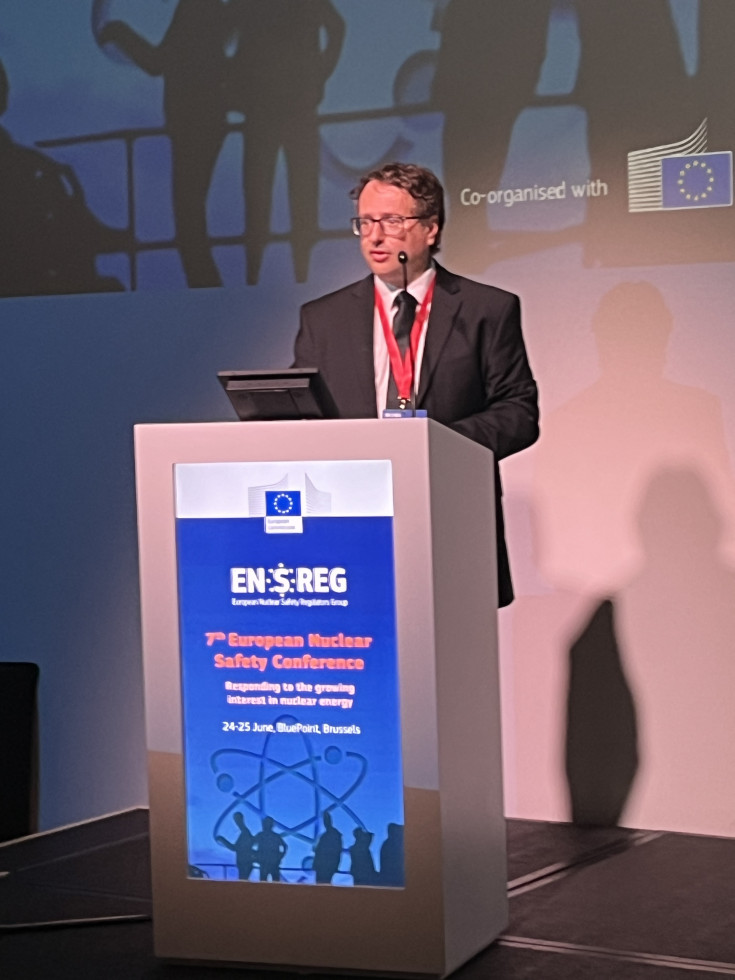Chairing the seventh European Conference on Nuclear Safety
Such conferences, organised by the European Commission, primarily focus on major issues in the field of nuclear safety but also provide an opportunity for the exchange of views and experience between representatives of EU Member States' regulatory bodies and other organisations working in the nuclear sector, as well as civil society. This year's conference, entitled "Responding to the growing interest in nuclear energy", addressed, among other things, some very topical and somewhat broader challenges, such as ensuring nuclear safety during the armed conflict in Ukraine and countering the impact of climate change on the safety of nuclear facilities.
High-level representatives of prominent international organisations in the field of nuclear and radiation safety presented their current priorities in the introductory session. In addition to the EU Commissioner for Energy and the Chair of ENSREG, the Director General of the OECD Nuclear Energy Agency, the current Chair of the Western European Nuclear Regulators Association (WENRA) and the Heads of the European Radiological Protection Competent Authorities (HERCA) were also present.
Already in the first topical session, several speakers identified a number of challenges for regulators in the future, including the emergence of new technologies and new types of reactors, digitalisation and artificial intelligence. It will be necessary to adapt the way of work while maintaining a high level of nuclear safety. The important challenge of recruiting and retaining qualified staff in the nuclear sector was also addressed, with a particular focus on inclusion and programmes for women in the nuclear sector. The discussion on climate change showed that the expected impacts have already been addressed by regulators and operators and that measures and adaptations have begun to be implemented in nuclear facilities. The next session on small modular reactors was split into two parts due to the high degree of interest. In addition to the presentation of the recently established European Industrial Alliance for Small Modular Reactors, some of the challenges faced by the industry and the approaches expected from regulators were mentioned. The second part focused on the potential challenges for regulators in licensing and regulation of reactor types that are still evolving.
It was emphasised on a number of points by the participants that the rapidly changing context and developments will require the adoption of new working methods and innovative approaches to address the regulatory and technical challenges of the future. However, intensive and open cooperation between all stakeholders will be essential. Nuclear safety remains an area that needs to be addressed in the international arena, as demonstrated by the strong interest in this year's conference and the intense discussions that followed. The next Nuclear Safety Conference is planned for 2026.

Director Igor Sirc during his opening speech | Author Slovenian Nuclear Safety Administration

